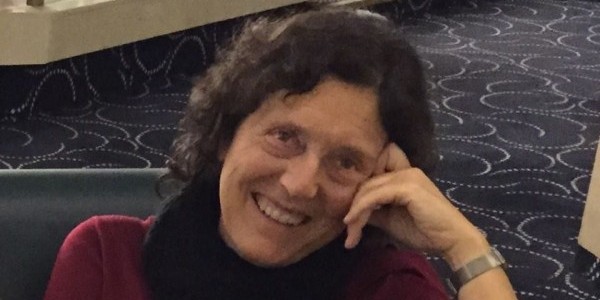Elijah Voices on Nostra Aetate - Dr. Therese Andrevon Gottstein
Presentation of the text of the document, its fecundity, and the challenges for the Catholic Church today, in its dialogue with the Jews and its theology in general.
31/01/2016 | Na stronie od 31/01/2016

Dr. Therese Andrevon Gottstein
Every two years, the Jesuit magazine Recherche de science religieuse, organizes a theological conference, which gathers most of the professors and students of their Paris Faculty. Last November, I was honoured to be invited to give a lecture there. To mark the 50th anniversary of the Conciliar Declaration Nostra Aetate, chapter 4, on the Jews, they dedicated their entire conference to this issue. I opened the session with a ninety minute presentation of the text of the document, its fecundity, and the challenges for the Catholic Church today, in its dialogue with the Jews and its theology in general.
In my thesis I showed the great metanoia, turning in transformation, accomplished by Nostra Aetate, the first official text of the Church toward the Jews. This document started a new era of positive language towards the Jews and Judaism and stopped definitively what was called the “teaching of contempt” against Jews. The authority of this text came from its conciliar context - the Council is the highest authority in the Church, so because Nostra Aetate is an conciliar text it has, de facto, a great authority for the whole Church even if it is only a declaration and not a dogmatic text. There is a second dimension to its authority, and this is a view of the text as an event. The promulgation of the text should be seen as an event and an important part of the enduring significance of Nostra Aetate is not simply the text but the event it constitutes. Indeed, Nostra Aetate launched a stream of texts and events that are part of the Nostra Aetate movement. The visits of popes to Jewish communities, to Auschwitz, and to the Land of Israel should be viewed as continuations of the event-dimension of Nostra Aetate.
Alongside the achievements of Nostra Aetate there remain challenges for the Catholic Church. First of all, it has to genuinely overcome the supersessionist theology. The difficulty is to affirm, on one hand, that Jesus is the universal and unique way of salvation and on the other hand to affirm equally that the Covenant of Israel is not revoked. Until the Church ceases to proclaim that it replaces the people of Israel in God’s plan as the ‘true Israel’(verus Israel), it will have difficulties overcoming a sort of superiority when comparing the Christian truth with the Jewish faith. Because historically the Jews were “before” and the Church came “after”, there is automatically a tendency to think in terms of “less” and “more”, “less perfect” “more perfect”. Therefore, Christian theology needs to work seriously on the very central notion of “fulfillment”. This could be the way to deal with the hard question of the mission towards the Jews. A second challenge for the Church is to explore the issue of the Land of Israel in theological terms. This goes beyond accepting the attachment of the Jews to the Land of Israel, and involves recognizing the theological significance of the Land for a theology of Judaism. Moreover, Christian faith could re-visit the meaning of the Land of Israel, from its own perspective, given that Jesus was a Jew.
I made a second presentation on the topic of Nostra Aetate in November, at a panel at the annual meeting of the American Academy of Religion. The subject of my presentation was the relationship between the Shoah and the redaction of Nostra Aetate. We typically hear and read that the Shoah was the direct cause of the redaction of the conciliar document. I offered an alternative thesis, based on the need to nuance this assertion. The Church could have not revised its views on Jews and Judaism only on the basis of the Shoah. While the Shoah was a major event as it showed the consequences of the multi-millenary teaching of contempt, it was the work of forerunners before the war that paved the way to begin a magisterial correction of the theology of supersessionism. In my opinion, what gave birth to a new Christian theology of Judaism is the combination of several factors: Biblical renewal, which took place during the late 19th and early 20th centuries, the Second Vatican Council and the Shoah. Put differently, the Shoah served as the birth pangs to deliver a new theology that had already been emerging by the time of the Second World War.
Despite amazing changes in the Church, the way ahead is still long. Christians still remain ignorant of Judaism. They still see the Jews only as “the people of the Old Testament”. Very few Christian scholars are devoted to Jewish Studies. Nostra Aetate was written by people who lived the War, and witnessed the Shoah. They felt the urgency to reform the teaching of the Church concerning Jews. A new generation of theologians is invited to arise and to continue and deepen their work. 50 years is a Jubilee and is therefore an opportunity for renewal. My hope is that Jews and Christians will be a blessing for the world, preparing together the way of the Messiah.
*Dr. Therese Andrevon Gottstein is a member of the Elijah Think Tank who completed her doctoral work on Nostra Aetate at the University of Leuven and the Catholic Institute of Paris. She made presentations at two major events to mark the jubilee year of its passing